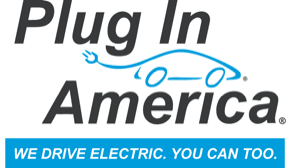Electric Vehicle Information
 IMPORTANT! - Before Installing a Charging Station
IMPORTANT! - Before Installing a Charging StationContact CRMU prior to installing a charging station at your home or business to see if you are eligible for a rebate! A CRMU representative will meet with you to conduct an evaluation to determine if CRMU's electric facilities need to be upgraded. If facility upgrades are needed, the customer may be required to pay a portion of the costs related to the upgrade as follows:
Residential
- CRMU responsible for transformer and distribution circuit upgrades.
- Customer responsible for time-of-use meter, socket, additional or upgraded electric service, any customer premise wiring.
General Service / Non-Residential
- CRMU responsible for distribution circuit upgrades.
- Customer responsible for time-of-use meter, socket, transformer upgrade or new installations, additional or upgraded electric service, any customer premise wiring.
EV Charging Station Rebate Available!
CRMU is providing one-time incentives for the installation of qualifying electric vehicle charging station equipment - up to $400 for single-phase and $450 for three-phase installations. Click for: Electric Vehicle Charging Station Rebate Form.
EV Rate Schedules
The best time to charge an electric vehicle is at night or on the weekends during off-peak hours when electric demand and energy costs are lowest. CRMU has developed Non-Residential "time-of-demand" rates which can provide savings to commercial customers who have the ability to shift demand and usage to nights and weekends. Please review the rate schedules below and feel free to contact CRMU with any rate questions.
R1 - Residential Rate for all residential EV Charging Stations not separately metered
R3 - Residential Electric Vehicle T.O.D. Rate for Separately Metered EV Charging Stations with separate electric service
GS3 - General Service Electric Vehicle T.O.D. Rate for EV Charging Stations less than or equal to 75 kW
GS4 - General Service Electric Vehicle T.O.D. Rate for EV Charging Stations > 75 kW and less than or equal to 350 kW
GSD - General Service Demand for EV Charging Stations > 350 kW
Frequently Asked Questions
From the mechanics of electric vehicles to their environmental benefits to charging rates - there is a lot to know. Below are some of the most frequently asked questions about electric vehicles:
How fast can I charge my EV?
Charging rates vary depending on the size/capacity of the charger. EV Charging stations are typically identified by level.

All electric vehicles can typically charge on Level 1 and Level 2 stations. However, some EVs are not compatible with all DCFC chargers or have built-in 50kW charging limits to preserve battery life. In addition to level types, EV chargers may have different connector types that vary based on the make of the EV - J1772, CCS, CHAdeMO or Tesla.
Where can I charge my EV?
Current research shows that the majority of charging for electric vehicles happens at home. However, when you are on the road and traveling you will need to utilize a public charging station. Some public charging stations are free and others require a fee or membership. New Way Ford will be installing a public charging station at their dealership in the near future. CRMU is also exploring the possiblity of installing a public charging station near Main Street. You can also utilize online "finding" tools or mobile phone apps to locate charging stations in your area. Below are two examples:


What does it cost to get plug-in ready?
Total cost varies depending on your current electrical design, electric code requirements, the rate and charging options you choose and other factors. Potential costs include the following:
- Charging Station Equipment Installation: This cost can be provider by your electrical contractor.
- Second Electrical Meter Installation: You'll need to budget for the installation of a second electrical meter and socket if you are installing a charging station > 3.8 kW. This allows your home's electric load to be measured on the existing meter while a second meter and dedicated breaker is used to measure your electric vehicle's energy demand and usage.
- Electric Panel Upgrade: This applies to customers who choose faster charging Level 2 systems, which utilizes 208-240 volts. These charging stations can add significant load to your electrical panel which may result in the need to upgrade or install an additional panel.
- CRMU Distribution System Upgrades: Your home may require CRMU to upgrade our distribution system in order for you to charge your electric vehicle. This cost can be determined by CRMU after an on-site assessment.
How does paying for kilowatt hours compare to buying gasoline?
The U.S. Department of Energy has created a website that determines an eGallon, or the cost of fueling a vehicle with electricity compared to a similar vehicle that runs on gasoline. You can also directly calculate your eGallon price with the formula below:



Can I sell back electricity from my electric vehicle battery through Vehicle-To-Grid Technology?
This technology is currently not available at CRMU; however, we are researching the costs and future feasibility of vehicle-to-grid (V2G) and vehicle-to-home (V2H) applications.
Does your Homeowners Insurance cover at-home EV Charging Stations?
If you have a charging station, ask your homeowners insurance agent if your policy covers charging stations for plug-in electric vehicles, or if you need to purchase additional coverage.
